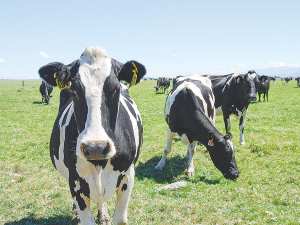2024/25 Dairy Statistics: NZ dairy farmers boost production with fewer cows
According to the New Zealand Dairy Statistics 2024/25 report, New Zealand dairy farmers are achieving more with fewer cows.
 17% of the national herd of 4 million cows did not get pregnant and won’t be producing milk in the coming season.
17% of the national herd of 4 million cows did not get pregnant and won’t be producing milk in the coming season.
OPINION: News that about 17% of the national herd of 4 million cows did not get pregnant and won't be producing milk in the coming season will come as a blow to many farmers and the economy of the country.
While the statistics from LIC are 'interim', the reality is the final figure when they do come out will differ little. It will add to a list of challenges already confronting the industry. Fonterra lowered its 2022-23 forecast farmgate milk price by 20c this month, inflation is still rising, as are interest rates, and labour supply and input costs are still an issue.
Arguably farmers should have seen this fertility drop coming and some did, spending extra cash to get their cows in perfect condition for spring mating.
The weather was unquestionably a problem and many farmers took the risk of milking late into last seaon. For some, this hasn't paid off. It was a tough winter and a late spring and balance days were over a week later than normal. In many cases, grass was low in ME.
But the stark reality which has emerged is that, on average, the reproduction performance of the national herd has dropped significantly. This was flagged in late spring when LIC noted that the submission rate for cows was down by 1.3%. It may not sound much in percentage terms, but the consequences of this will impact on both the meat and dairy sectors, which are intertwined.
If 40,000 plus extra cull cows become destined for the works, can the processors who are already hort of labour cope? Will this flood of cull cows impact on the beef schedule and how will that play out in export returns to New Zealand?
The international meat market is already in a fragile state and the operatins and marketing staff in the meat companies will be scratching their heads to find a way to deal with this challenge.
One could argue that some of the problem was due to farmer fatigue and the lack of quality labour - something incidentally that has affected returns in other primary sectors.
What it does show is that farmers can't afford to drop their game at any time, regardless of their situation.
Coming in at a year-end total at 3088 units, a rise of around 10% over the 2806 total for 2024, the signs are that the New Zealand farm machinery industry is turning the corner after a difficult couple of years.
New Zealand's animal health industry has a new tool addressing a long-standing sustainability issue.
The Government has announced that ACC will be a sponsor of this year's FMG Young Farmer of the Year competition.
As veterinary student numbers grow to help address New Zealand's national workforce shortge, Massey University's School of Veterinary Science is inviting more veterinary practices to partner in training the next generation of vets.
South Island dairy farmers will soon be able to supply organic milk to Fonterra.
Norwood has announced the opening of a new Tasman dealership at Richmond near Nelson next month.